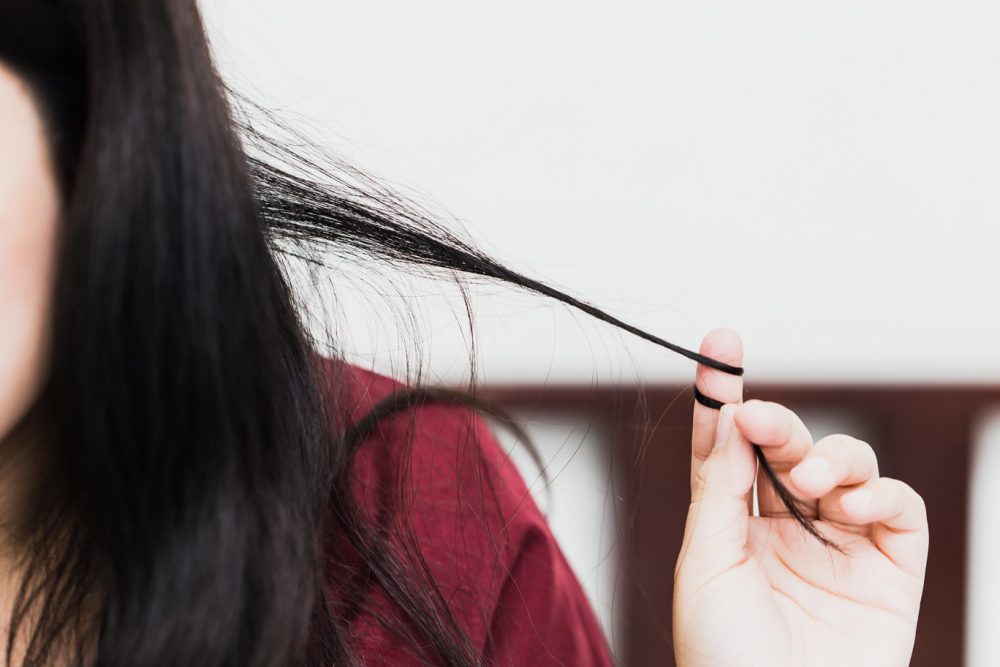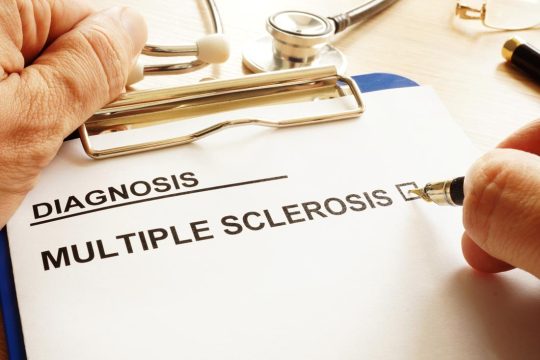Advertisment
New research points to drug option for hair-pulling, skin-picking disorders

New research at the University of Chicago Medicine has found that a drug commonly used to treat symptoms of Alzheimer’s disease effectively reduced symptoms of adults who experience compulsive hair-pulling and skin-picking.
Treatment with the drug memantine was associated with significant improvements compared to a placebo for patients with trichotillomania (a disorder where individuals cannot resist the urge to pull out their hair) and skin-picking disorder (also known as excoriation disorder).
No medication is currently approved by the U.S. Food and Drug Administration for the disorders, which can cause obvious hair loss and skin damage, emotional distress and reduced ability to function socially or at school or work, said lead author Jon Grant, MD, professor of psychiatry and behavioral neuroscience at the University of Chicago Medicine.
“A person’s self-esteem is greatly impacted by these behaviors, so they may not go for interviews for a better job, for example. They may not have the social life they want,” Grant said.
Trichotillomania and skin-picking disorder are regarded as two separate diagnoses, but they have many similarities. Cognitive behavioral therapy is a first-line treatment, but finding therapists well-versed in the disorders can be difficult, he said.
“People often feel that they have to educate the clinician,” Grant said.
Researchers honed in on memantine based on earlier findings by Grant and others that revealed, in individuals with either disorder, disorganized areas of white matter in certain parts of the brain controlling motor habits.
The findings suggested involvement of the neurotransmitter glutamate, a leading theory of the neurobiology behind obsessive-compulsive disorder, Grant said.
When it comes to drugs, “We don’t have a lot of options about what might modulate glutamate in the brain,” he said.
Grant selected memantine, which is approved to address memory loss and deficits in thinking in people with Alzheimer’s disease and has been used off-label for various psychiatric disorders. It is well-tolerated by patients and has few serious side effects, he said.
While Grant was investigating memantine for trichotillomania and skin-picking disorder, another patient of his was prescribed the drug for a separate reason.
“It came kind of serendipitously,” he said. “One day the patient told me, ‘Wow, that stopped me from pulling my hair.’”
The new study at the University of Chicago involved 100 adults with trichotillomania or skin-picking disorder who were enrolled in the double-blind trial of memantine or a placebo for eight weeks.
Researchers assessed patients every two weeks using the National Institute of Mental Health Trichotillomania Symptom Severity Scale, which they modified for skin-picking, because there is no commonly used measurement for the disorder.
They also recorded changes using four other self-reported and clinician-observed accounts of symptoms and behaviors. Patients were seen virtually because of the COVID-19 pandemic.
Seventy-nine participants completed the study. Two dropped out after reporting dizziness while taking the medication.
After eight weeks, 26 of the 43 study participants taking memantine had much improvement or very much improvement, compared to three of the 36 taking a placebo. Six people in the memantine group and one in the placebo group had complete relief of symptoms.
An analysis found that memantine is more effective than other treatments studied thus far, including behavioral therapy, the drug olanzapine (used to treat schizophrenia and bipolar disorder), the drug clomipramine (used to treat obsessive-compulsive disorder), and N-acetylcysteine (an over-the-counter supplement).
The comparisons suggest that memantine might be considered a first-line treatment equal to behavioral therapy in the treatment process for these conditions, according to the study.
Grant said the results point to several additional areas for research, including combining memantine with behavioral therapy or with N-acetylcysteine, which showed promise in previous studies led by Grant. Longer-term use of memantine and different doses also are potential avenues for study, he said.
“The results did show that the medication helped more than the placebo, for which I was very pleased, but it tells me that there’s still a lot more to do,” Grant said. “Even though the results were promising, it was still a very small minority of people in terms of complete remission of symptoms.”
Still, some study participants indicated they intended to seek memantine prescriptions from their primary physicians to continue on the drug, Grant said.
“Some people came in thinking, ‘Nothing has been able to help me.’ Some of them were seeing by the end that this one is different,” he said.
The study, titled “Double-Blind Placebo-Controlled Study of Memantine in Trichotillomania and Skin-Picking Disorder,” was published online February 22 and will appear in the May issue of The American Journal of Psychiatry.
Additional authors include Eve Chesivoir, BA, Stephanie Valle, BA, and Dustin Ehsan, MD, of the University of Chicago, and Samuel R. Chamberlain, MB/BChir, PhD, MRCPsych, Department of Psychiatry, Faculty of Medicine, University of Southampton, U.K., and Southern Health NHS Foundation Trust, Southampton, U.K.





